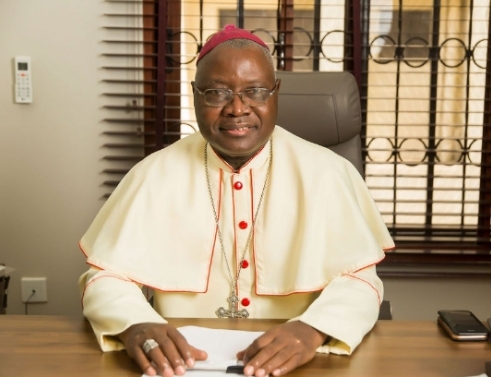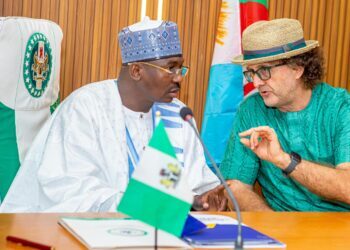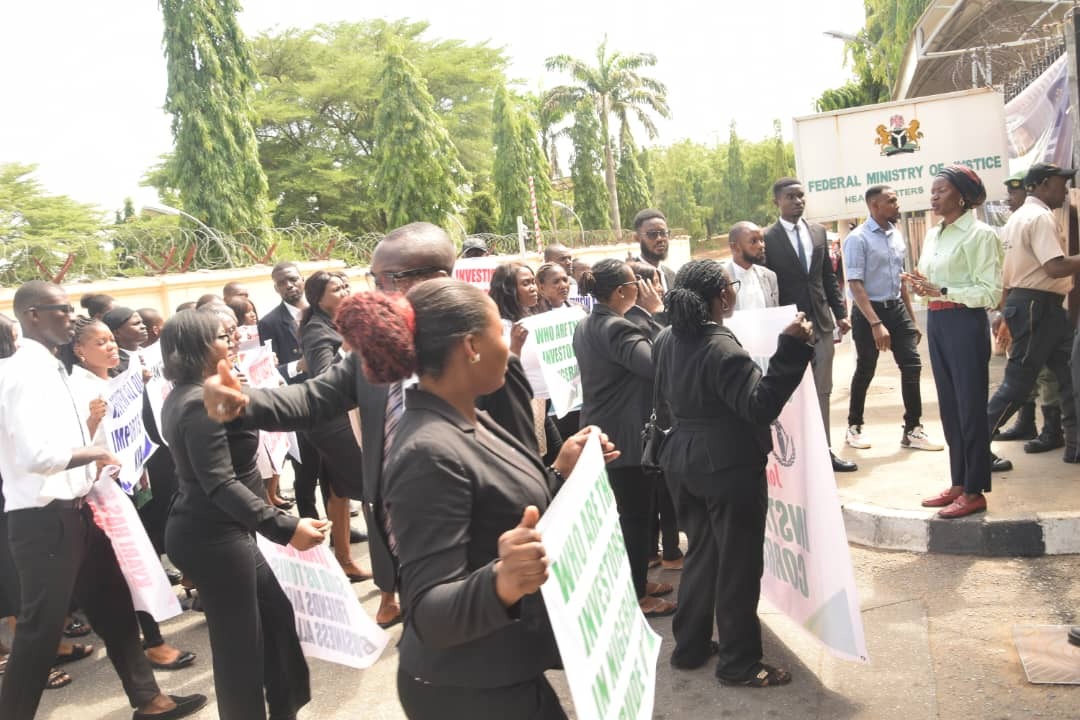The passing of Pope Francis, whose burial is scheduled for Saturday, has reignited discussions regarding the possibility of an African ascending to the papacy.
Archbishop Ignatius Kaigama of Nigeria’s Abuja Diocese expressed that African Cardinals possess an equal opportunity to become pope, similar to candidates from any other region.
In related news, it was announced on Tuesday that numerous world leaders, including former U.S. President Donald Trump and his wife Melania, UK Prime Minister Keir Starmer, French President Emmanuel Macron, and Javier Milei, are expected to attend the funeral at St. Peter’s Basilica in Vatican City.
Prince William will also represent the King at the funeral, according to Kensington Palace, while Ukrainian President Volodymyr Zelensky, who has met with the Pope three times, plans to attend as well.
In an interview monitored by THISDAY, Archbishop Kaigama emphasized that while qualified Africans do not have lesser chances, the current need is for a Pope with a diverse perspective. He stated, “Historically, there have been black Popes, particularly in the early centuries of the Church, but there has not been a black Pope in modern times. Who says a black person cannot be Pope?”
He affirmed, “An African can be Pope. We have African Cardinals who hold the same chances as anyone from America or Europe. However, we are not solely praying for an African Pope; we seek a good and holy Pope, regardless of race or origin—be it black, Asian, American, or European.”
Africans are hopeful that one of their own may become the first modern Black Pope, continuing Francis’s legacy of supporting the developing world, although reports suggest the likelihood of this occurring is slim.
Africa, where religion deeply influences both private and public life, is home to the fastest-growing Roman Catholic population, as indicated by recent Vatican statistics.
Charles Yapi, a Catholic priest from Ivory Coast’s commercial hub, Abidjan, remarked, “Having a Black Pope would invigorate the Christian faith in Africa and reshape perceptions of the continent by demonstrating that an African can hold this esteemed position.”
Potential African papal candidates include Ghanaian Cardinal Peter Kodwo Appiah Turkson, 76, Cardinal Fridolin Ambongo Besungu from the Democratic Republic of Congo, 65, and Ivory Coast’s Cardinal Ignace Bessi Dogbo, 63.
As of 2023, Africa accounted for approximately 20 percent of the global Catholic population, adding 9 million adherents the previous year.
It’s important to note that an African pope may not necessarily align with Pope Francis’s more progressive views, such as the conditional blessing of same-sex unions, which has been a contentious issue among Africa’s predominantly conservative followers. Yapi noted that an African pope might assert that same-sex relationships “are not part of our culture” and resist external pressures to accept them.
This issue could influence the cardinal electors during the conclave, as many may prefer a candidate whose views are more aligned with those of Pope Francis.
Pope Francis, aged 88, passed away on Monday following a stroke and cardiac arrest, marking the end of a often tumultuous papacy characterized by conflicts with traditionalists and advocacy for the marginalized.
He spent five weeks hospitalized earlier this year due to double pneumonia and had been on a path to recovery. However, the Vatican reported that his death was swift and painless. He began feeling unwell around 5:30 a.m. (0330 GMT) on Monday, received immediate attention, and approximately an hour later, he bid farewell to his nurse before slipping into a coma. His time of death was recorded at 7:35 a.m.
As part of the funeral preparations, his body will be transported to St. Peter’s Basilica on Wednesday morning at 9:00 a.m. in a procession led by cardinals, where he will lie in state until Friday evening at 7:00 p.m. The funeral service is set for the following day at 10:00 a.m. in St. Peter’s Square, presided over by Cardinal Giovanni Battista, the 91-year-old Dean of the College of Cardinals.
While Europe still represents the largest portion of cardinal electors at approximately 39 percent, this is a decrease from 52 percent in 2013 when Pope Francis took office. The second largest group of electors now hails from Asia and Oceania, making up about 20 percent.











